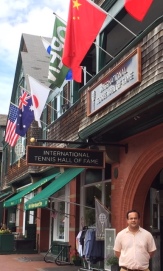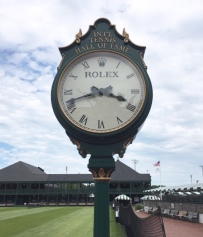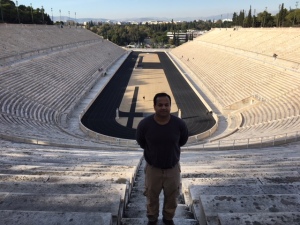My introduction to racquet sports as a kid in Abu Dhabi, UAE was thanks to my father so it was fitting that both of us visited the International Tennis Hall of Fame together in Rhode Island. Unlike my solo journey to Ancient Olympia in Greece, this was not just another pilgrimage or site visit but a special summer escape for father and son to represent extended family members in India and the United States who are amateur tennis players and supporters of the sport in their respective countries. We are not considered racquet sports royalty or celebrities of any sort but we do hold tennis in high regard and want to see others in the sport succeed.
Pervez Mohammed, my father was an amateur tennis player who grew up playing the sport in Assam, India and played through his mid-life in Saudi Arabia while working at Unilever. On my Kerala side of the family, there are other amateur tennis players such as Michael Kallivayalil, my 94-year old grandfather who has won several amateur veteran tennis tournaments and Geetha Varghese, my aunt who has enjoyed many league matches and tennis round-robins in the United States. Also Jacob Kallivayalil, my mother’s cousin, is a former President of the Kerala Tennis Association. Therefore our visit to the tennis shrine was a family affair.
Whether you find yourself on a tennis or squash court, timing is important just as in life. Both tennis and squash have been enjoyable pastimes for our family as lifelong fans. There can be ups and downs and wins and losses, but I think Rolex has got it right in their commercials of “perpetual excellence” from outstanding sport professionals. While watching from home with my father, the incredible and historic 2019 Men’s Singles Wimbledon Championships bared a strong resemblance of our visit to the International Tennis Hall of Fame. Thank you Papa for introducing me to tennis as well as being part of my journey in sport and life.















